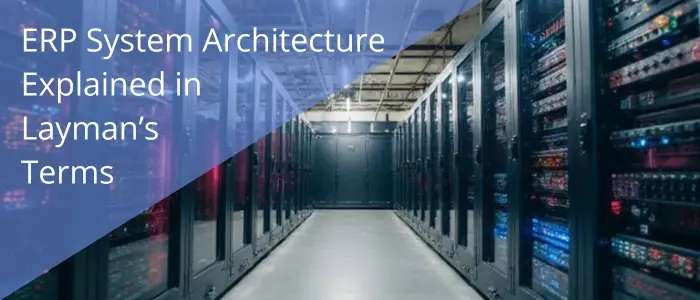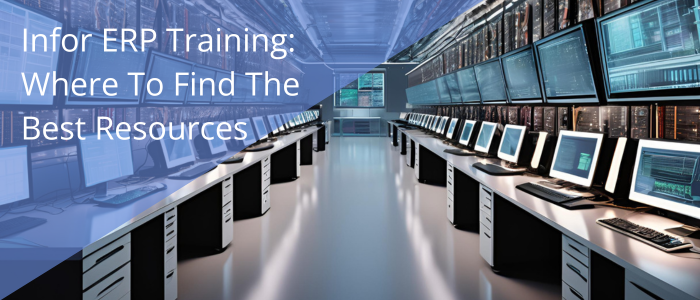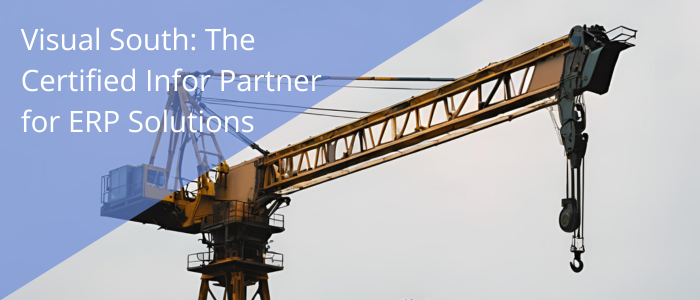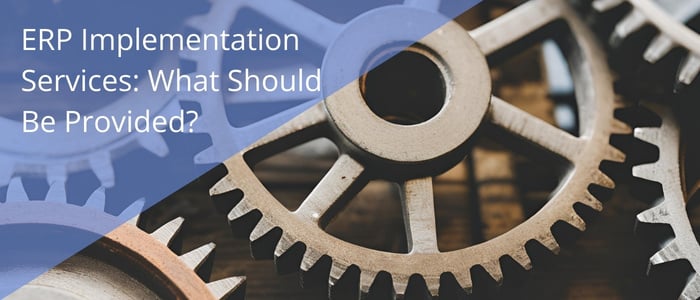When manufacturers start exploring ERP systems, they often hear the term “ERP architecture.” It can sound technical and abstract, but the reality is much simpler. ERP architecture is really about how an ERP system is structured and how well it supports the way your business operates.
ERP System Architecture Explained in Layman’s Terms
By Jonathan Kucharski on 1/20/26 2:29 PM
Infor Named #1 ERP In 3 Gartner Magic Quadrant Studies
By Tim O'Brien on 1/8/26 5:16 PM
As someone who has spent decades helping manufacturers evaluate and implement ERP systems, I know how difficult it is for companies to sort through competing vendor claims. Every ERP vendor has a polished website, compelling demos, and a long list of features. What most manufacturers really want to know is simple:
Why ERP Implementation Consultants Matter As Much As The Software
By Tim O'Brien on 1/7/26 5:38 PM
If you are in the market for a new enterprise resource planning (ERP) system, don’t just focus on the software’s functionality. Limiting your search criteria to just the ERP is like shopping for a new house and not factoring in the location. Not paying attention to or discounting the importance of other critical factors can narrow your choices, but increase your chance of being unhappy with what you ultimately choose – whether that’s a nice house in a bad location or new ERP that isn’t working for your company. The good news is this can be avoided. In the case of ERP, it comes down to closely evaluating the ERP implementation consultants you’ll be working with just as much as evaluating the ERP itself.
How to Implement an ERP System Step-by-Step
By Bryan Foshee on 3/31/25 10:00 AM
The right ERP can transform a company by providing data which wasn’t previously available. In many cases, life before ERP consisted of looking for problems and then figuring out how to solve them. A good example of this is the production meeting, where supervisors and managers sit in a room and go over every job. Most of the meeting is spent looking for problems. Imagine going into the meeting knowing the problems—and starting with possible solutions. That’s what ERP can do. But getting there is a process.
ERP Maintenance: How To Best Use Your ERP After Implementation
By Bryan Foshee on 1/31/25 10:00 AM
Who cares how you implemented your ERP? It’s about how you use it.
4 Options for Handling Tax Compliance in Your ERP
By Bryan Foshee on 11/12/24 10:00 AM
Tax compliance can be a tricky and time-consuming task, especially for manufacturing businesses operating across multiple jurisdictions. Most companies in the industry have an ERP system in place that helps streamline operations and internal processes, but these solutions don't always come with robust tax compliance features. To keep your business growing and avoid common tax pitfalls, here are a few options for handling tax compliance within your ERP system:
ERP Roll-Out Strategy: How Infor Changed The Game
By Tim O'Brien on 9/18/24 10:00 AM
Infor ERP Training: Where To Find The Best Resources
By Jason Brown on 8/14/24 10:00 AM
Effective training is crucial for maximizing the value of any ERP system, and Infor ERP is no exception. Whether you’re using Infor VISUAL, CloudSuite Industrial (SyteLine), or any other Infor product, having access to high-quality training resources is essential for ensuring your team can fully leverage the software’s capabilities.
Visual South: The Certified Infor Partner for ERP Solutions
By Tim O'Brien on 7/24/24 10:00 AM
About Visual South
Visual South is an Infor Certified Gold Channel Partner for both Infor CloudSuite Industrial/SyteLine ERP and Infor VISUAL ERP. We have been helping manufacturers use Infor ERP to run their businesses better since 1994, offering deep expertise on the implementation and execution of these solutions.
ERP Implementation Services: What Should Be Provided?
By Bryan Foshee on 7/10/24 10:00 AM
Early in my career, someone shared a piece of wisdom that resonates deeply: “There isn’t anything more expensive than cheap ERP.” Over time, I’ve seen the truth in this statement. The top companies view their ERP system as a strategic asset and invest accordingly. Like sophisticated equipment on the shop floor, an ERP system requires regular maintenance, training, and updates to perform at its best. Neglecting these aspects can lead to suboptimal performance and missed opportunities.














